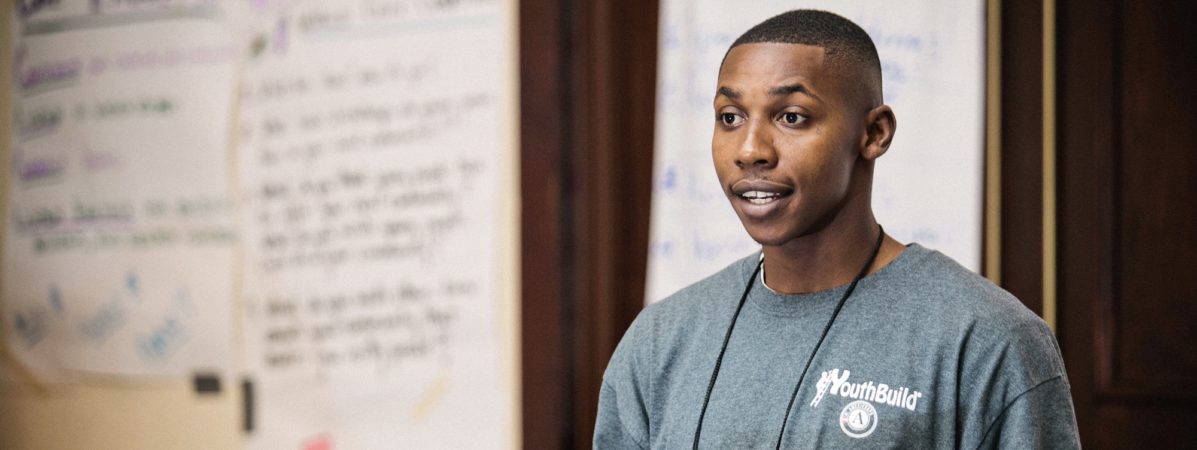
Universal Design for Learning (UDL) is “a framework to improve and optimize teaching and learning for all people based on scientific insights into how humans learn” (CAST). UDL’s guiding principles are:
UDL’s principles are powerful supports for Opportunity Youth who have opted out of schools and learning environments that failed to meet their needs. Many Opportunity Youth have had traumatic experiences within the traditional school setting, and often these educational struggles are rooted in undiagnosed learning differences.
As a result, when they do come back to learning, usually through nontraditional paths like YouthBuild USA, these learners often are fearful of how they are viewed, wondering if they are valued, and hesitant to bring their full selves to the learning space. UDL principles honor where these young people have been, who they currently are, and who they want to be. In addition, UDL’s mission of recognizing each learner as an individual provides the foundation for building trust and partnership with a teacher or facilitator––key pieces in constructing a healthy, sustainable learning environment that makes learning student-centered and accessible for all.
Teachers need support to know how to best work with students and their learning differences, including the varied learning needs of Opportunity Youth. However, to the extent that we have found high quality professional development focused on helping educators understand and respond to learning differences, these efforts are almost exclusively for K-12 educators. We know hundreds of thousands of Opportunity Youth in alternative learning environments also deserve educators who have benefitted from investments and support to develop skills to respond to learning differences.
With recent funding from the Oak Foundation and the National Science Foundation, YouthBuild USA is working with CAST to use UDL principles to think differently about helping educators support meaningful learning for all students.
With CAST, we have created the Learning Differences Leadership Cohort of Fellows. Each year, ten to 15 Fellows are selected from applicants across the network of YouthBuild educators in 45 US states and 220+ programs. In 2016, we had our first participant from a YouthBuild International program in Mexico City.
The Fellows participate in a 12-month, intensive professional development experience focused on learning differences. The Fellows learn how to:
The first component of the year-long program is direct work with expert educators. YouthBuild programs benefit from incredibly talented educators who use effective youth development principles to create an asset-based school culture thriving with teaching strategies to meet learning differences. We have turned these YouthBuild classrooms into front-line PD for the Fellows to develop knowledge and use tools to recognize and respond to student learning differences.
The Fellows also participate in a MOOC focused on understanding and responding to learning differences in their classroom. Through the 12-week online course, Fellows deepen their understanding of learning differences and how the related constructs of motivation, executive function, and working memory impact how young people process information. They apply strategies in their classroom using the visual and tactile resources from the MOOC coursework and resources.
We at YouthBuild USA hope to open this conversation to others interested in bringing the voices of underserved learners to the story of learning differences. We are leading a free Digital Promise Adult Learning webinar on March 29 to discuss UDL and its impact on Opportunity Youth and other adult learners. A Fellow will be joining us to share her experiences translating principles into practice. We hope you can join us as well––register here.